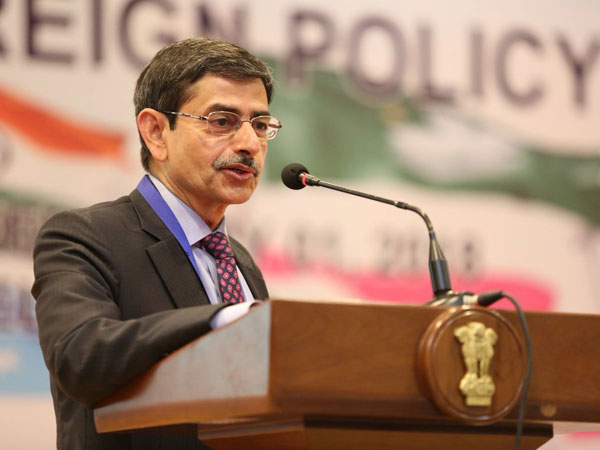
With R N Ravi back as Deputy NSA, team Doval’s 3-tier security system gets a boost
New Delhi, Oct 5: The Centre has re-designated R N Ravi as the Deputy National Security advisor (internal affairs). He will however continue to be the centre's interlocutor for Nagaland.
Ravi is a key official in the government and is the man shaping the Naga peace accord. Ravi will be the third deputy NSA to National Security Advisor, Ajit Doval after former Research and Analysis Wing chief, Rajinder Khanna and serving diplomat Pankaj Saran.

Each of these officials play a vital role in shaping India's national security. India has a three-tier internal security structure, which includes a National Security Council, headed by the Prime Minister, a strategic policy group and a National Security Advisory Council.
Shaping India's security:
The prime push for the government has been internal security. With the three tier internal security structure in place, the emphasis has been on controlling home grown terror, external threats from groups such as the Islamic State and also the insurgency in the North Eastern states.
R N Ravi has played a vital role in ensuring that groups from the North East have come to the talking table. When Ravi was given the assignment, he opened the doors to all Naga groups to come and record their suggestions.
Also Read | NSA visits Iran to discuss regional peace and security from ISIS
The Naga peace accord was a major issue and the government wanted to leave no stone unturned. Ravi was instrumental in clinching the framework agreement. He said that there were clear directions from the Prime Minister that the Nagas should win and the negotiations with the Naga group was not a zero sum game.
The aggressive game:
When Doval was appointed as the NSA, it became clear that the government had big plans on internal security. The country was ridden with problems from home grown terror groups such as the Indian Mujahideen and Students Islamic Movement of India.
Moreover in the year 2014, the threat from the Islamic State was massive and many Indian Muslims had become prone to radicalisation. The security apparatus was shaped in such a way that the ISIS did not gain traction in India.
Also Read | Will Naga solution be 100 per cent satisfactory to all with 6 groups joining peace talks?
One of the key problems that was identified was relating to radicalisation. The government had a different policy regarding this. The first was the setting up of 'Operation Chakravyuh,' which tracked conversations online. Those falling trap to the ISIS were identified and handled in two ways. If the problem was not severe, they were counselled and brought to the mainstream. In extreme cases, the law prevailed. Experts say that this approach did help the ISIS stay away from India to a large extent and over the years the traction levels fell considerably, barring in a few places such as Kerala and Kashmir.
Furthermore with timely action and concrete intelligence, the agencies were able to reign in on groups such as the SIMI and IM. Several attempts to re-group too were thwarted with the arrests of Abdul Subhan, the founder of the IM.
Doval also put in place the offensive-defence policy. Doval said that there can be only two outcomes- The defender successfully neutralizes the offensive on the whole, but there will be bruises and injuries or the aggressor wins and the defender loses.
Getting the coordination right:
One of the key factors that was put in place was coordination. There was in fact a time in the early part of 2014 when the IB had stopped giving the government information. The coordination between the R&AW and the IB was also nothing to tom-tom about.
Intelligence was shared with the cops, but more often than not, it made its way to shredder as it was considered not actionable. The scenario has changed considerably today, thanks to coordination. The IB deals with all levels of officers in a bid to pass on intelligence that is actionable in nature and also ensures that the same is acted upon.
The United States of America:
India recently held a successful 2+2 dialogue with the United States of America. Following this Doval visited Washington to hold meetings with the top officials of the Trump administration, which holds him in very high esteem.
Doval, met with Secretary of State Mike Pompeo at the Foggy Bottom headquarters of the State Department.
Also Read | Rafale: Cost based on equipments, weapons, Ajit Doval's 150 minute presentation
One of the key aspects during this meeting was the purchase of the Russian made S-400. Doval made it clear that the integrity of American military platforms in service with the Indian Air Force and future acquisitions will not be compromised if Delhi goes ahead with the purchase. India also cited the history of military hardware acquisitions from Russia.
Doval during the meetings also looked at other issues such as North Korea, China, Afghanistan, Pakistan, West Asia and the Indo-Pacific.


 Click it and Unblock the Notifications
Click it and Unblock the Notifications































